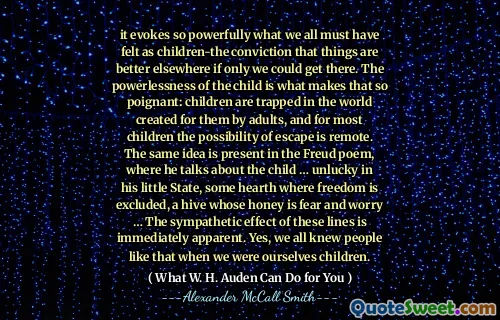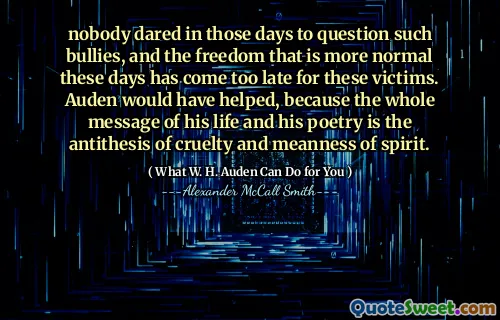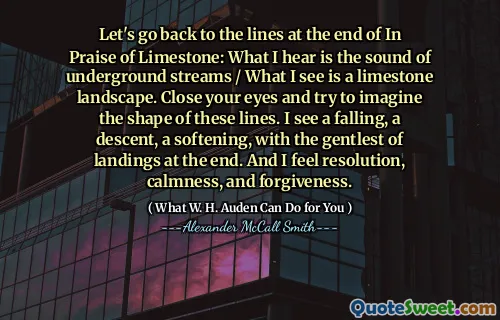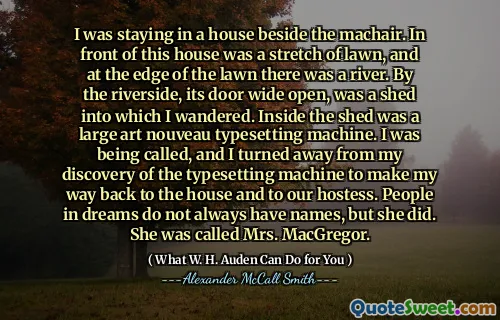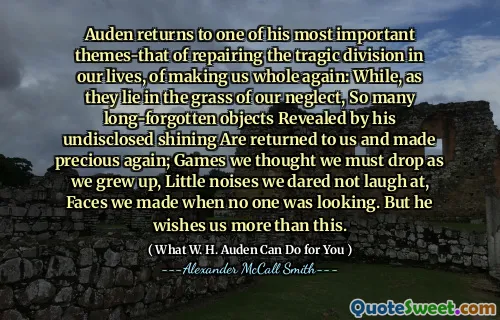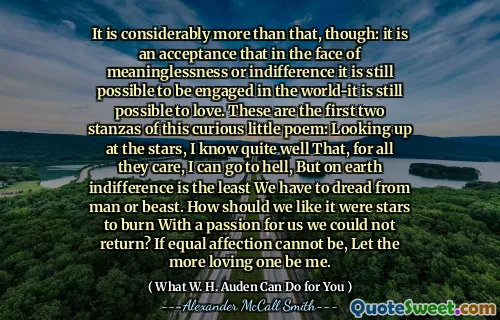
Auden returns to one of his most important themes-that of repairing the tragic division in our lives, of making us whole again: While, as they lie in the grass of our neglect, So many long-forgotten objects Revealed by his undisclosed shining Are returned to us and made precious again; Games we thought we must drop as we grew up, Little noises we dared not laugh at, Faces we made when no one was looking. But he wishes us more than this.
Auden revisits a key theme in his work: the need to mend the rifts that exist within our lives and restore our sense of completeness. He encourages us to acknowledge the many neglected aspects of our lives, symbolized by forgotten objects lying in the grass. These elements, once overshadowed, are brought back to light through a process of rediscovery, transforming them into something valued again. This reflects a nostalgic longing for the innocence of youth and the simple joys that accompany it.
However, Auden’s aspiration extends beyond mere nostalgia. He desires for us to reclaim not only our forgotten games and private joys but to embrace a deeper wholeness and fulfillment in life. The text suggests that Auden’s vision calls for a recognition and acceptance of our past while pushing us to grow and experience life more openly and authentically. His work challenges us to not just return to simpler times but to appreciate them in the context of our broader human experience.
